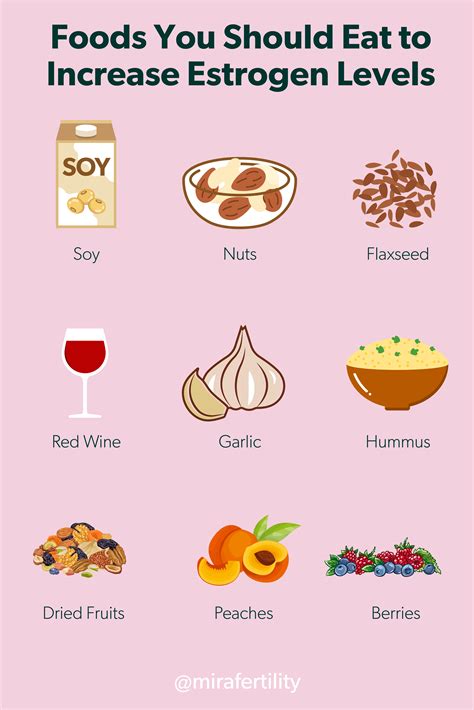How to Increase Estrogen Naturally: A Holistic Approach to Hormone Balance
Estrogen, a crucial hormone for women's health, plays a vital role in everything from menstruation and fertility to bone health and mood regulation. When estrogen levels dip too low, it can lead to a range of uncomfortable symptoms. While medical intervention is sometimes necessary, many women are exploring natural ways to boost their estrogen levels. This guide explores holistic methods to support your body's natural estrogen production. Remember, always consult your doctor before making significant changes to your diet or lifestyle, especially if you have underlying health conditions.
Understanding Estrogen and Its Importance
Before diving into methods to increase estrogen, it's essential to understand its function. Estrogen is primarily produced in the ovaries, but also in smaller amounts by the adrenal glands and fat tissue. It's a complex hormone with numerous roles, including:
- Regulation of the menstrual cycle: Estrogen controls the thickening of the uterine lining, preparing it for potential pregnancy.
- Bone health: It's vital for maintaining bone density and preventing osteoporosis.
- Cardiovascular health: Estrogen helps protect against heart disease.
- Cognitive function: It plays a role in memory and cognitive function.
- Mood regulation: Estrogen influences mood and can impact emotional well-being.
Natural Ways to Boost Estrogen Levels
Several lifestyle changes and dietary adjustments can support your body's natural estrogen production. These methods aren't a guaranteed cure for low estrogen but can contribute to better hormone balance.
1. Dietary Changes: Fueling Your Body with Estrogen-Supporting Foods
Phytoestrogens: These plant-based compounds mimic the effects of estrogen in the body. Incorporating foods rich in phytoestrogens can be beneficial.
- Soy products: Tofu, tempeh, edamame, and soy milk are excellent sources.
- Flaxseeds: Grind flaxseeds and add them to smoothies, yogurt, or cereals for maximum benefit.
- Lentils: These legumes are packed with nutrients and phytoestrogens.
- Whole grains: Oats, barley, and quinoa offer various health benefits, including some phytoestrogens.
Other Essential Nutrients:
- Healthy fats: Avocado, olive oil, and nuts are crucial for hormone production.
- Cruciferous vegetables: Broccoli, cauliflower, and cabbage support liver function, which is important for estrogen metabolism.
2. Lifestyle Adjustments: Supporting Hormonal Balance
- Manage stress: Chronic stress can disrupt hormone balance. Incorporate stress-reducing techniques like yoga, meditation, or spending time in nature.
- Prioritize sleep: Aim for 7-9 hours of quality sleep per night. Sleep deprivation can negatively impact hormone levels.
- Maintain a healthy weight: Being overweight or obese can affect estrogen levels. A healthy weight through balanced diet and regular exercise is key.
- Limit alcohol consumption: Excessive alcohol intake can interfere with hormone production.
- Regular exercise: Moderate exercise strengthens bones and improves overall health, contributing to better hormone balance. Avoid over-exercising, which can have the opposite effect.
3. Herbal Remedies: Exploring Natural Options (Consult Your Doctor First!)
Some herbal remedies are traditionally associated with supporting estrogen levels. However, it's crucial to consult your doctor before using any herbal supplements, as they can interact with medications or have side effects. Examples include:
- Red clover: Contains phytoestrogens.
- Dong quai: A traditional Chinese medicine herb.
When to Seek Medical Advice
While these natural methods can be helpful, it's essential to seek medical attention if you suspect low estrogen levels. Symptoms such as irregular periods, hot flashes, vaginal dryness, and bone pain warrant a visit to your doctor. They can perform blood tests to measure your estrogen levels and discuss appropriate treatment options, which may include hormone replacement therapy (HRT) in certain cases.
Disclaimer: This information is for educational purposes only and is not intended as medical advice. Always consult with a qualified healthcare professional before making any decisions related to your health or treatment.
